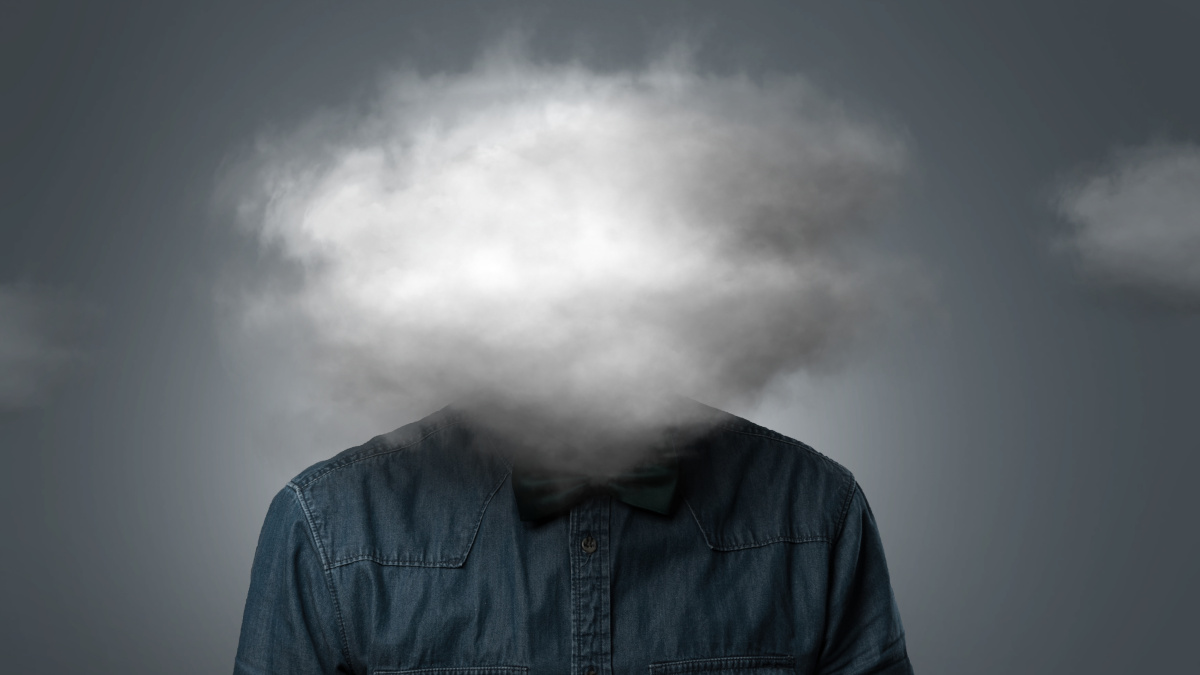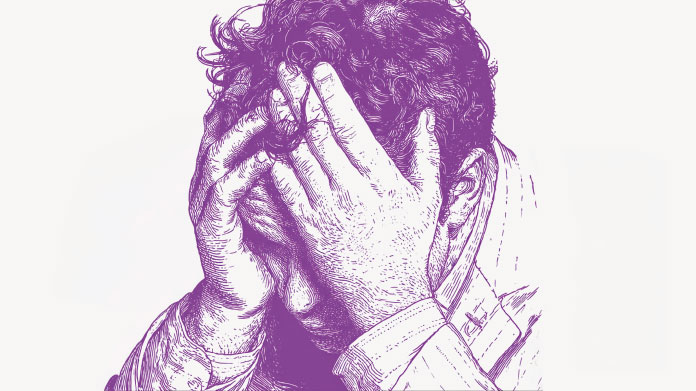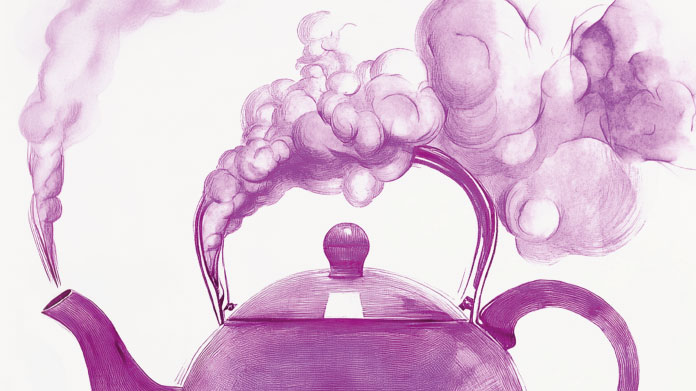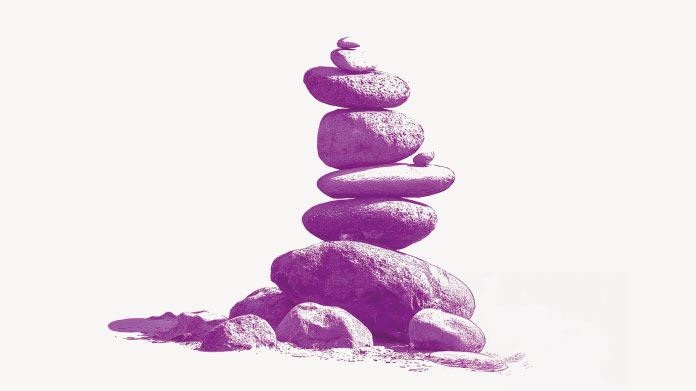Depression: 5 plants to help beat the blues and low mood
Are you going through a difficult period? Suffering from low mood? There are natural substances that can help to banish the blues and get you back on track.

Klamath: a super-algae that helps improve mood
Klamath, or Aphanizomenon flos-aquae (AFA) to give its scientific name, is a microscopic blue-green algae and a genus of cyanobacteria. It grows in Lake Klamath in Oregon, where it has long been consumed by Native Americans.
Now cultivated in the lake, just 50,000 tons are harvested each year which are then freeze-dried to preserve all the algae’s nutrients. This low rate of harvest and method of drying also makes it a rare substance.
A highly-popular super-algae and super-food, Klamath is a veritable mine of vitamins (it contains provitamin A, vitamins B1, B2, B3, B5, B6, B8, B9, B12, vitamins C, E and K), as well as proteins (which represent 50% of the dry material), calcium, magnesium, sodium, phosphorus and potassium (1).
Most importantly, Klamath algae contains phenylethylamine (PEA), an alkaloid that acts as a stimulant of the central nervous system.
This alkaloid is sometimes referred to as the ‘love drug ’, because the body produces it naturally when we ‘fall’ for someone.
It is this exact molecule that actually triggers the feeling of well-being and ‘walking on air’ experienced by those in love.
As a result of its phenylethylamine content, Klamath algae thus helps to confer positive effects on mood (2). So if you’re suffering from a case of the blues, you could try a supplement such as Klamath AFA.
Ashwagandha: an Ayurvedic herb for supporting emotional equilibrium
Alongside holy basil, ashwagandha, the botanical name of which is Withania somnifera, is a key plant in Ayurveda, India’s age-old traditional system of medicine which focuses on balancing the mind and body (3).
Rich in piperidine, pyrazole, pyrrolidine and other alkaloids, as well as in withanolides, beta-sitosterol and other phytosterols, ashwagandha’s composition is similar to that of ginseng, and it is indeed often referred to as ‘Indian ginseng’. This ayurvedic herb also contains a number of essential amino acids and trace-elements (4).
Classified as an ‘adaptogen’, which means it can help the body manage stress of various sorts, ashwagandha is used in traditional medicine for a variety of problems. Most importantly, it has been shown in a number of studies to provide excellent support during periods of anxiety and nervous tension, as it promotes relaxation, emotional equilibrium and general well-being. (5)
Supplementing with Super Ashwagandha can therefore be very helpful for dealing with low mood or episodes of anxiety.
St. John’s Wort: a perennial plant long used for ‘chasing away the devil’
Hypericum perforatum, or Saint-John’s wort, is a perennial herb which grows naturally on slopes and in meadows. It has been used throughout Europe for centuries for addressing various problems.
In the Middle Ages, it was used as a topical treatment for mild burns and insect bites … but above all for ‘chasing away the devil’ (in other words, for driving away tormenting spirits).
Indeed, it is primarily its benefits for anxiety and depressive conditions which make it so widely used and studied today (6). St. John’s Wort contains active substances thought to act as inhibitors of ‘happiness hormones’ (7-8).
A course of St John’s Wort Extract can therefore help to restore emotional balance and mental and physical well-being, and to maintain good quality sleep and a positive mood.
Valerian: a medicinal plant that helps support mental well-being
Dating back to the era of Greek and Roman physicians such as Hippocrates, Dioscorides and Galen, valerian is an ancient medicinal plant used throughout Europe and Asia. Today, it features in a number of phytotherapy treatments, particularly those for insomnia (9).
Valerenic acid, valepotriates, glutamine, etc.: valerian contains a number of compounds, some quite specific.
However, taking each of these molecules separately does not appear to have a significant effect, whereas double-blind research shows that taking an extract of Valeriana officinalis, as it’s known botanically, offers beneficial effects on anxiety and sleep (10).
So while its mechanisms of action remain poorly understood, valerian is recognized as helping you to maintain good quality sleep, and cope with a hectic lifestyle or irritability, as well as to help induce a feeling of well-being. Valerian is included, for example, in the formulation Advanced Sleep Formula, for its ability to promote optimal relaxation.
Eleutherococcus: the excellent ‘Siberian ginseng’
A thorny shrub, the root of which is used in phytotherapy, eleutherococcus grows in extreme conditions in the heart of Siberia. This ‘Siberian ginseng’ is also classified by phytotherapists as an adaptogen (11).
Eleutherococcus senticosus is recognized for its effects on physical and mental health. In particular, it’s thought to support recovery in cases of weakness, exhaustion, fatigue, during convalescence, etc. In general, it is believed to increase mental and physical energy.
The supplement Adrenal Support provides a good intake of eleutherococcus. This Siberian plant constitutes an effective solution when you’re run-down or going through a bad patch.
References
- Mycosporine-like Amino Acids and Other Phytochemicals Directly Detected by High-Resolution NMR on Klamath (Aphanizomenon flos-aquae) Blue-Green Algae, Valeria Righi, Francesca Parenti, Luisa Schenetti, and Adele Mucci, Journal of Agricultural and Food Chemistry 2016 64 (35), 6708-6715, DOI: 10.1021/acs.jafc.6b02615
- Genazzani AD, Chierchia E, Lanzoni C, et al. [Effects of Klamath Algae extract on psychological disorders and depression in menopausal women: a pilot study]. Minerva Ginecologica. 2010 Oct;62(5):381-388.
- Scientific Basis for the Therapeutic Use of Withania somnifera (Ashwagandha): A Review, Lakshmi-Chandra Mishra, MD (Ayur), PhD, Betsy B. Singh, PhD, Simon Dagenais, BA, Alternative Medicine Review Volume 5 Number 4 2000
- Withania somnifera (Ashwagandha): A Review, Girdhari Lal Gupta and A. C. Rana, Pharmacognosy Reviews, Vol 1, Issue 1, Jan- May, 2007
- An Alternative Treatment for Anxiety: A Systematic Review of Human Trial Results Reported for the Ayurvedic Herb Ashwagandha (Withania somnifera), Morgan A. Pratte, Kaushal B. Nanavati, Virginia Young, and Christopher P. Morley.The Journal of Alternative and Complementary Medicine.Dec 2014.901-908.http://doi.org/10.1089/acm.2014.0177
- Müldner H, Zöller M. [Antidepressive effect of a Hypericum extract standardized to an active hypericine complex. Biochemical and clinical studies] Arzneimittel-forschung. 1984 ;34(8):918-920.
- https://www.supersmart.com/fr/blog/stress-moral/millepertuis-comment-cette-plante-favoriserait-le-bien-etre-mental-s248
- https://www.vidal.fr/parapharmacie/phytotherapie-plantes/millepertuis-hypericum-perforatum.html
- https://www.vidal.fr/parapharmacie/phytotherapie-plantes/valeriane-valeriana-officinalis.html
- Sebastián Fernández, Cristina Wasowski, Alejandro C Paladini, Mariel Marder, Sedative and sleep-enhancing properties of linarin, a flavonoid-isolated from Valeriana officinalis, Pharmacology Biochemistry and Behavior, Volume 77, Issue 2, 2004, Pages 399-404, ISSN 0091-3057, https://doi.org/10.1016/j.pbb.2003.12.003.
- N.V. LAZAREV 7e congrès soviétique de physiologie, biochimie et pharmacologie, 1947 p. 579
Keywords
4 Days
great products and prices
great products and prices
Marie
9 Days
Easy to navigate site
Easy to navigate site, had what I was searching for, good price. easy order-check out
James Tucker
16 Days
My skin is clearing up nicely!
Pretty good for my skin so far.
Christian
18 Days
The new packaging is excellent
The new packaging is excellent - finally! No more squashed boxes and torn envelopes.
GORAN
19 Days
Great Product
Great Product
Larry Garrett
23 Days
Quick shipping
Quick shipping; good price. No issues!
Mary McCarty
24 Days
Thr product is very good and is helping…
Thr product is very good and is helping me on my health. Then is always on time
LUGO Luz
27 Days
Buying was fine
Buying was fine. I had problems with the website not recognizing my login info, and had to call to get it fixed. Other than that, everything was good.
David S. Clark
27 Days
Your super maca and super ginseng are…phenomenal
Your super maca and super ginseng are phenomenal supplements that compliment each other when taking them together. Fantastic feeling of well-being and lots of mid day energy without the crash.
Keith Mason
30 Days
I have had amazing results with every…
I have had amazing results with every supplement I've purchased. I am extremely satisfied with this company
kirstin Torres
30 Days
Fine products
Fine products . They are on the leading edge of online supplements. The only issue -so far-is they sometime run out of subscription items.
Jason Argos
33 Days
The ordering process is very user…
The ordering process is very user friendly and the products always come in a timely manner.
CARTER Rhonda
34 Days
The price for Dr
The price for Dr. Pero's AC-11 is reasonable and in line with his views. (my former colleague). Keep it pure.
CAMPBELL Clayton
37 Days
Right on every time.
Right on every time.
Arthur Nicholas
39 Days
They are cheaper than everyone else and…
They are cheaper than everyone else and the shipping was fast. Great company.
Patricia Adams




